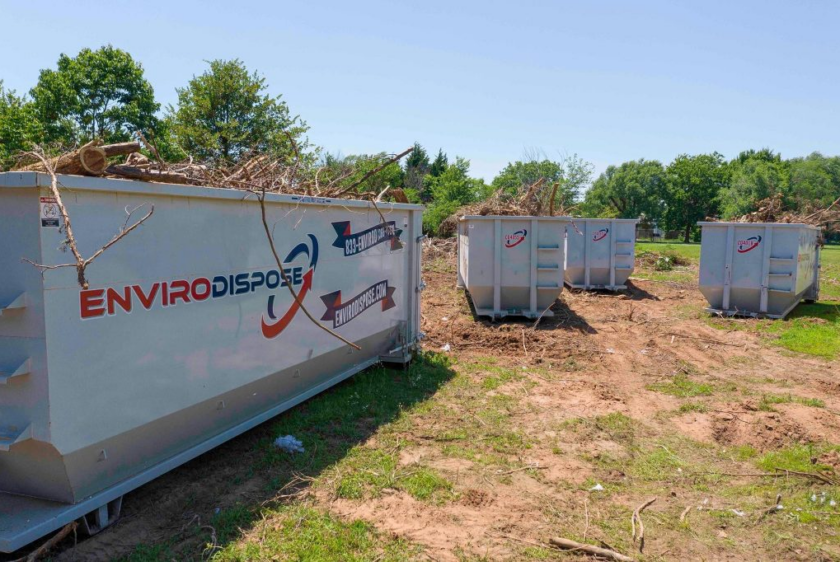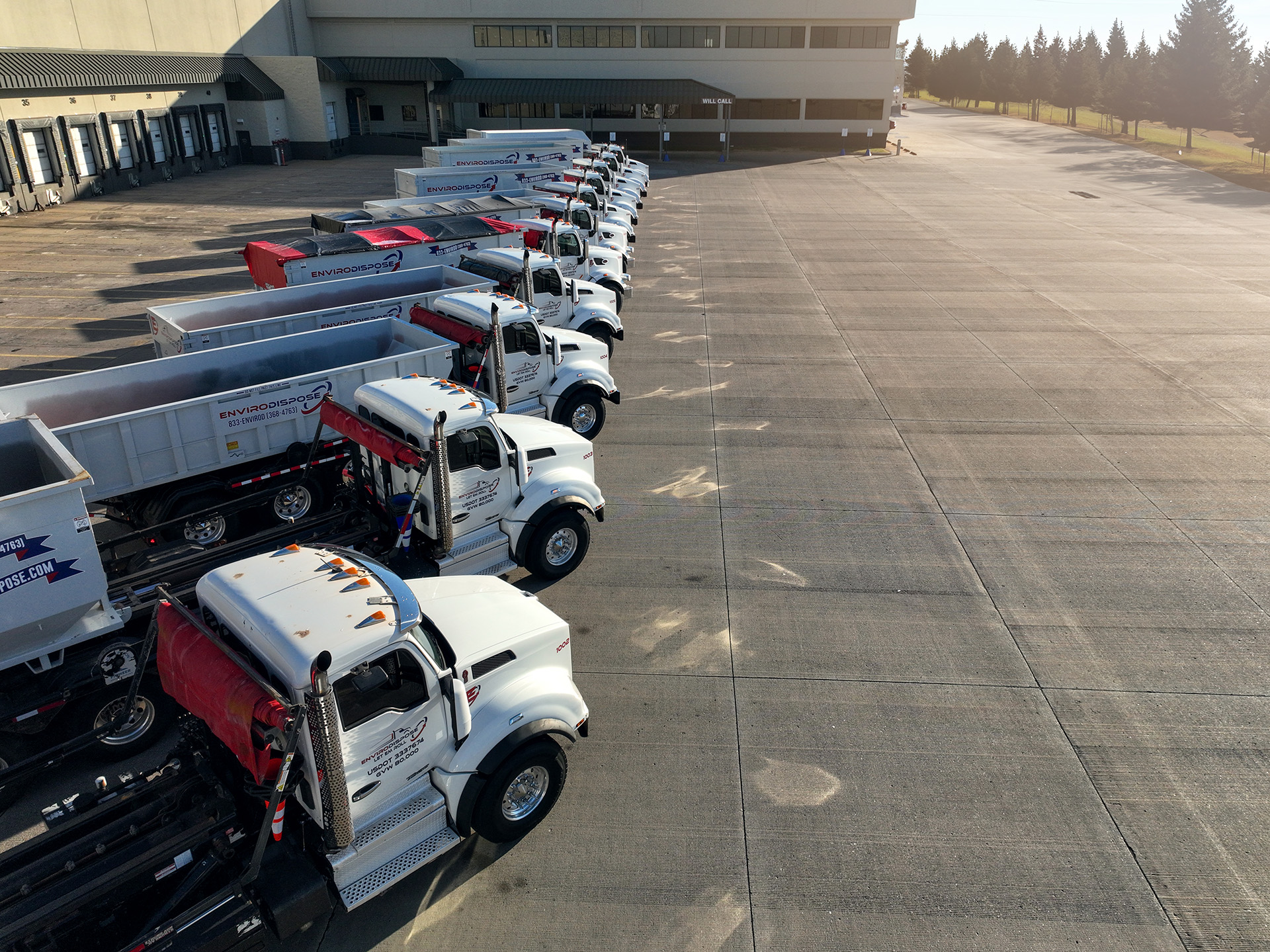
Understanding Dumpster Rental Costs for Your Next Job
Planning a major project like a home renovation, construction job, or large event often involves renting a dumpster. Understanding the costs involved in renting a dumpster can help ensure that you budget accurately and avoid unexpected expenses. At EnviroDispose, we aim to make this process easy for you by breaking down the different factors that influence dumpster rental costs.
Various elements can impact the price of a dumpster rental. The size of the dumpster, the duration of the rental, and the type of waste you’re disposing of all play a significant role in determining the overall cost. Additionally, your location and any local fees or regulations can add to the expense. Being aware of these factors helps you plan better and choose the best options for your needs.
Knowing the ins and outs of dumpster rental pricing can save you time and money, making your project run smoothly from start to finish. By understanding what influences these costs, you can make more informed decisions and ensure your project stays within budget. This guide will walk you through the key considerations, helping you navigate the process with ease.
Factors That Influence Dumpster Rental Costs
Several factors can impact the cost of renting a dumpster, and understanding these can help you manage your budget more effectively. The first major factor is the size of the dumpster. Generally, larger dumpsters cost more to rent because they hold more waste and require more resources to transport and manage. Small dumpsters are typically cheaper but may require multiple rentals if your project generates a lot of waste.
Duration also plays a crucial role in pricing. Renting a dumpster for a longer period will increase the cost. Most rental companies offer a base price for a set period, such as a week, and then charge extra for each additional day. Planning ahead and scheduling your project timeline efficiently can help you avoid extended rental fees.
The type of waste being disposed of can influence the cost as well. Regular household waste usually costs less to dispose of compared to hazardous materials or construction debris. Some items, like electronics or large appliances, may incur additional disposal fees due to special handling requirements. Understanding the nature of your waste can help you estimate costs more accurately.
Comparing Dumpster Sizes and Their Impact on Pricing
Choosing the right dumpster size is crucial for managing costs. Different sizes are suited for different types of projects, and each size has its own price point. Knowing the right size for your project can help you avoid paying for unused space or needing additional rentals.
Here’s a quick comparison of common dumpster sizes and their typical uses:
– 10-Yard Dumpster: Ideal for small home cleanouts or minor renovation projects. This is the most cost-effective option for small-scale jobs.
– 20-Yard Dumpster: Suitable for medium-sized projects like room remodels or landscaping. It provides a good balance between capacity and cost.
– 30-Yard Dumpster: Designed for larger projects, such as home additions or construction sites. It’s more expensive than smaller sizes but necessary for larger volumes of waste.
– 40-Yard Dumpster: The best choice for major construction projects or large-scale cleanouts. This is the highest-cost option due to its large capacity.
Each increment in size usually comes with an increase in cost. It’s important to choose a dumpster that comfortably fits your waste volume. This avoids the extra expense of multiple rentals or overfilled dumpsters, which can result in additional fees. Accurately estimating your waste generation will help you select the most economical and efficient dumpster size for your needs.
Understanding Additional Fees and How to Avoid Them
When renting a dumpster, it’s essential to be aware of any extra fees that might not be included in the base price. These additional charges can add up and throw off your budget if you’re not careful. Common extra fees include overage charges, which apply if you exceed the weight limit of your dumpster. To avoid these fees, try to keep track of how much waste you’re adding, especially if your project involves heavy materials like concrete or dirt.
Another potential cost to be aware of is the fee for hazardous materials. Regular household and construction waste are usually straightforward, but items like chemicals, batteries, and paints require special handling and disposal. These materials often incur extra fees because they can’t be processed with regular waste. Always check what can and cannot be placed in the dumpster to avoid surprises.
Delivery and pickup fees can also affect your total rental cost. Some companies include these in the rental price, while others charge separately. Scheduling efficient drop-off and pickup times can help minimize these fees. Lastly, be mindful of possible charges for extending your rental period beyond the agreed-upon time. Planning your project timeline accurately helps you avoid late fees and ensures a smooth process.
Tips for Budget-Friendly Dumpster Rentals
If you’re looking to save money on your dumpster rental, these practical tips can help you get the best deal while still meeting your needs. First, size your dumpster accurately. Ordering a dumpster that’s too large can result in paying for unused space, while too small a dumpster may require additional rentals. Accurately estimate your project’s waste to find the right balance between size and cost.
Another tip is to plan your rental period wisely. Schedule your dumpster delivery closer to the start date of your project and plan for efficient garbage disposal. This helps you avoid extra days of rental fees. Being prepared with a clear timeline can save you money by reducing the rental duration.
Additionally, shop around and compare quotes from different providers. Prices can vary, so obtaining multiple quotes ensures you get the best rate. Don’t hesitate to ask about any promotions or discounts that might be available. Lastly, consider sharing the rental with neighbors or friends if they have waste disposal needs as well. This can split the cost and make the rental more economical for both parties.
Conclusion
Understanding the costs associated with dumpster rentals can make a significant difference in managing your project’s budget. By considering factors like dumpster size, rental duration, and types of waste, you can better estimate and control your expenses. Awareness of additional fees helps avoid unexpected charges, while practical tips for efficient use ensure you get the most value out of your rental.
At EnviroDispose, we’re dedicated to providing clear, straightforward rental services to help you tackle any project smoothly. With this comprehensive guide, you’re now equipped to make informed decisions about your roll-off dumpster rental and keep your project on track financially. Ready to choose the right dumpster and take the hassle out of waste disposal? Contact EnviroDispose today for reliable and affordable dumpster rental options tailored to your needs!


